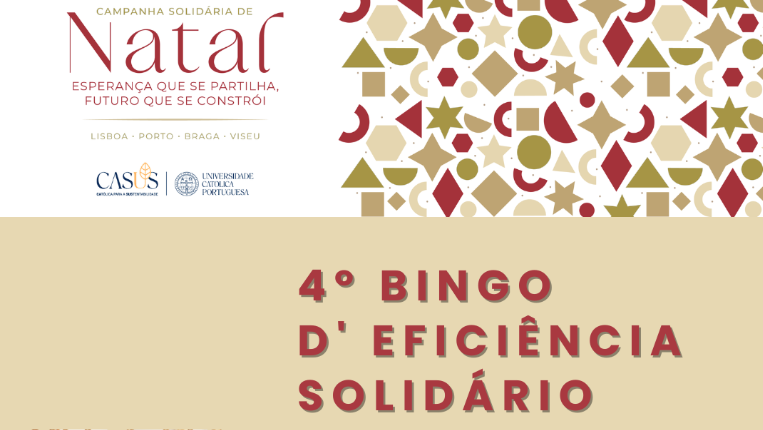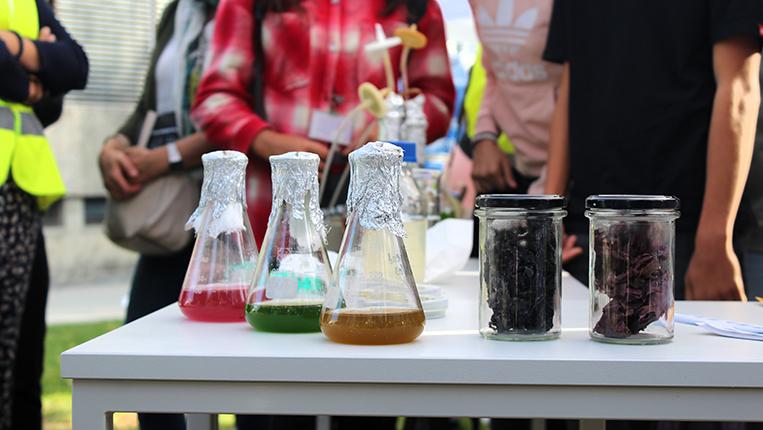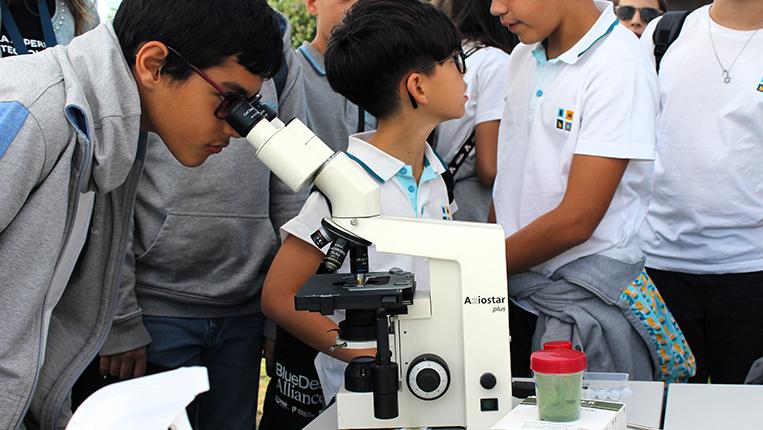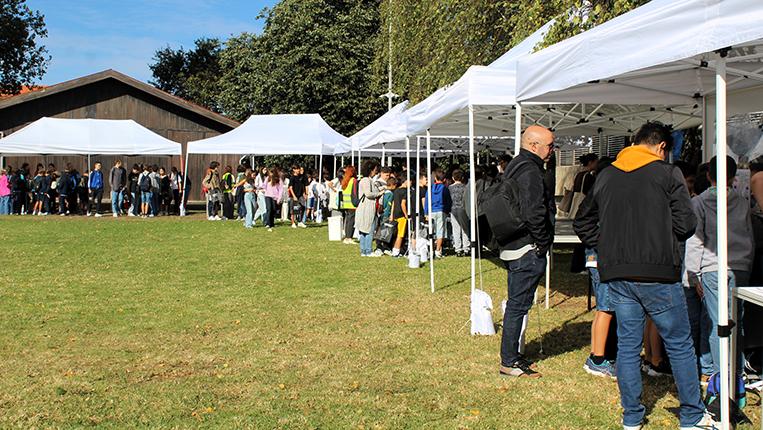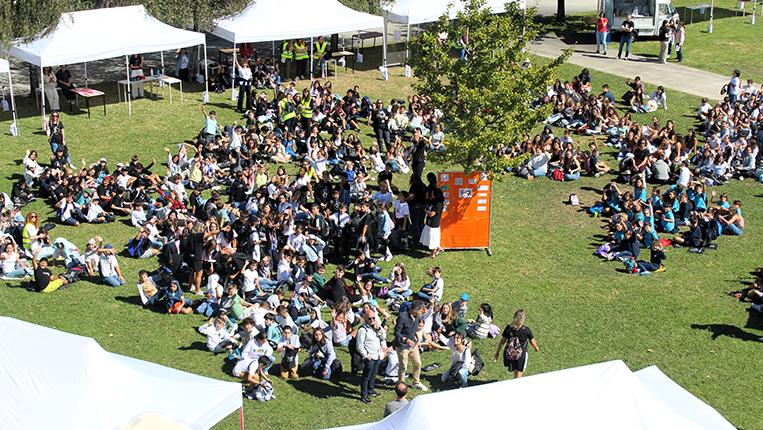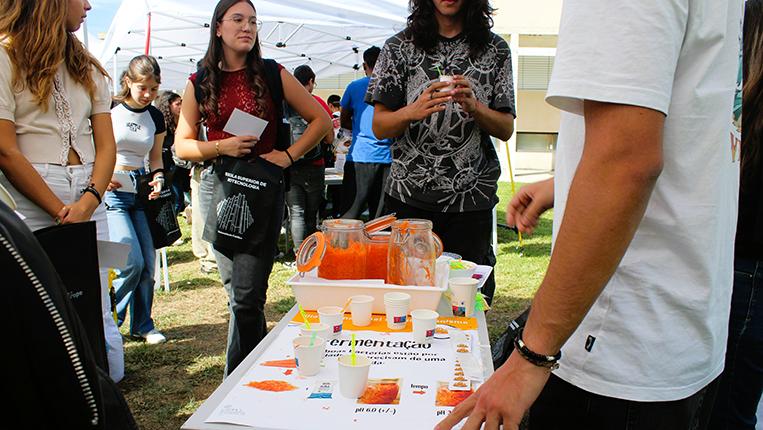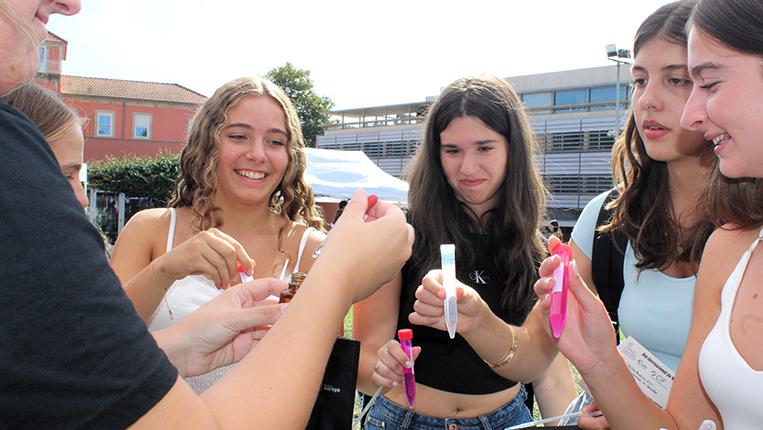Microorganisms were in the spotlight at the Faculty of Biotechnology of the Universidade Católica Portuguesa, in Porto, with an initiative that invited more than 1,000 primary and high school students from across northern Portugal to explore the fascinating invisible world of microbiology.
The Microorganism Fair featured around 30 experimental activities led by undergraduate, master’s and doctoral students, as well as lecturers from the Faculty of Biotechnology, and researchers from the Centre for Biotechnology and Fine Chemistry (CBQF) at the Universidade Católica Portuguesa.
“This initiative is now in its fourth year, and we are seeing more and more young people joining us to explore the invisible world of microorganisms – tiny beings that shape our planet, our health and even the food we eat,” said Paula Castro, Dean of the Faculty of Biotechnology. She added: “This faculty has a long-standing history in this field: it was here that the country’s first undergraduate course in microbiology was created, and in our research centre biotechnology and microbiology are lived and breathed every single day.”
In an outdoor laboratory environment, participants carried out experiments that demonstrated the essential role of microorganisms in the environment, in food production and safety, in human health and even in the development of innovative products with industrial and scientific applications. Among the most innovative proposals were the Foldscope, a paper microscope accessible to everyone, and Bio&Tec, a card game that challenged students to master microbiology concepts. Other activities, such as identifying microorganisms through rapid tests (“Who am I?”) or observing the microorganisms present in yoghurt under the microscope, sparked particular curiosity, showing how these invisible beings are part of everyday life.
Several activities highlighted the role of microorganisms in wastewater treatment, soil health, and aquaponics ecosystems – where fish and plants are grown in shared environments. Gastronomy also had its place, with experiments such as yoghurt encapsulation inspired by molecular gastronomy, and sensory analysis of the characteristics provided by the fungi involved in the production of different types of cheese. These activities demonstrated the importance of microorganisms in food production, as also shown in the bread-making activity, where students observed baker’s yeast under the microscope and tested its cell viability.
The playful dimension was equally central, with games such as Cluedo: Micro Edition, presented by Frulact S.A., which challenged participants to discover the microorganism responsible for food contamination; Mission Antibiotic, on the importance of completing treatments correctly; and even Microbiological Rooster and Who’s Who?, adapted versions of classic games to explain the microbial world.
“It was a day of awareness-raising and contact with different microorganisms in a laboratory context, but in a relaxed outdoor setting,” highlighted Joana Barbosa and Joana Cristina Barbosa, researchers and members of the organising committee.
“By opening the doors of the faculty to primary and secondary school students, we are fulfilling our mission to promote scientific literacy among the younger generations. In STEM fields, which the country so greatly needs, we cannot wait for students to arrive at university before sparking their curiosity and motivation for quality knowledge,” emphasised the Dean.
“We want to show how microorganisms, although invisible to the naked eye, are an integral part of our lives, being essential to our food and health, as well as to the environment around us. In fact, only 43% of the cells in the human body are human – the rest are microorganisms,” the researchers concluded.
At the end of each session, participants had the chance to win gifts offered by the Faculty of Biotechnology, BlueDesignAliance (BDA), and the companies that took part in the event, namely Frulact S.A. and MicroHarvest. Students were also able to take home Foldscopes and Bio&Tec games, as well as microorganism plush toys to scale, offered by GiantMicrobes.
The initiative took place on 24 September as part of the celebrations for International Microorganism Day (17 September), marking the date in 1683 when Antonie van Leeuwenhoek first described these organisms to the Royal Society of London.



